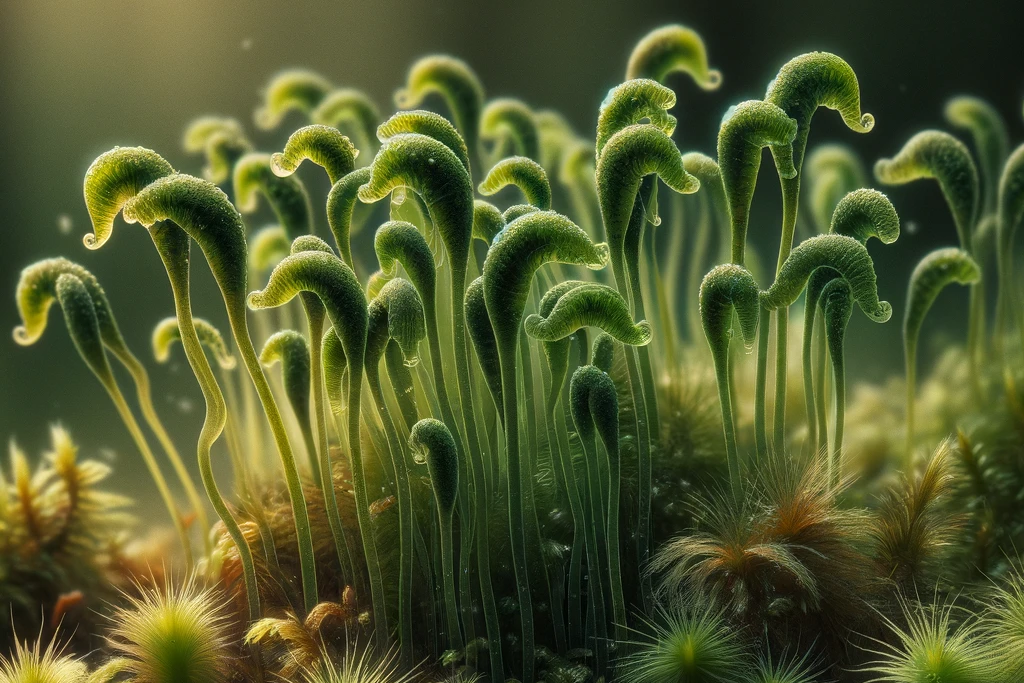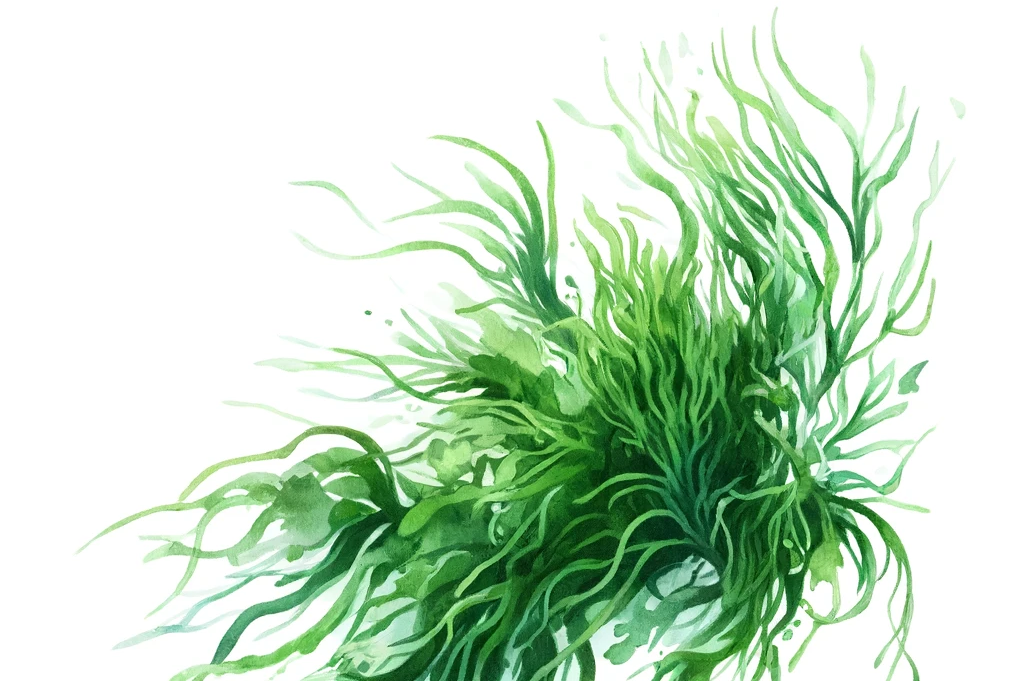Deciduous mosses

Often overlooked as inconspicuous inhabitants of damp woods and shady places, mosses hold a secret that can be important to the health and well-being of your four-legged friend. In this article, we dive deep into the world of broadleaf mosses, exploring what they are and revealing their pros and cons in relation to dogs. Let's explore this green wonder together.
What are deciduous mosses?
Deciduous mosses belong to the Bryophyta family and represent a primitive form of plant life on our planet. With over 12,000 species worldwide, they have adapted to a variety of environments, from moist forests to urban areas where they thrive among cobblestones. These plants are characterized by their ability to absorb and store water like a sponge, which helps them survive in their often waterlogged habitats.
Benefits of deciduous mosses for dogs
Natural climate regulation
Deciduous mosses can make the environment more comfortable for dogs. Their ability to retain moisture helps to increase the humidity around them, which can make for a cooler and more comfortable environment, especially on hot days.
Health-promoting properties
Some studies suggest that the environment in which deciduous mosses grow has a lower concentration of harmful bacteria. This could indicate that deciduous mosses have an antibacterial effect, which could also be beneficial for dogs by providing them with a cleaner environment for their walks and explorations.
Soft carpet pad
For dogs that like to rest and play outdoors, leaf moss provides a soft and comfortable surface. This can be particularly beneficial for older dogs or dogs with joint problems.
Disadvantages of leaf moss for dogs
Potential toxicity
Although most types of moss are safe for dogs, there are some that may contain toxic substances. It's important to be aware of which species are growing in the area to avoid potential health risks to your dog.
Parasites and insects
Due to their moist nature, deciduous mosses can provide a home for various parasites and insects that can be harmful to dogs. These include ticks and fleas, which can transmit diseases.
Allergic reactions
Some dogs can have an allergic reaction to leaf moss. Signs of an allergic reaction can include skin irritation, itching or breathing difficulties.
Deciduous mosses offer an intriguing mix of benefits and potential drawbacks for dogs. Their ability to regulate humidity and create a health-promoting environment makes them an interesting option for the natural design of outdoor play and resting areas. At the same time, it is important to keep an eye on potential risks such as toxicity, parasites and allergic reactions. If you want to integrate deciduous moss into your dog's environment, it is advisable to do so wisely and with consideration for the specific needs and health of your four-legged companion. In this way, the green secret of deciduous mosses can be unlocked safely and beneficially for your dog.
If you notice any signs of hypersensitivity or poisoning in your dog, you should see your vet immediately. We are not a substitute for a vet, but we try to be as accurate as possible. Every dog reacts differently and we recommend you get a second opinion or consult your vet if in doubt.
Stay healthy and take good care of your four-legged friend!😊
Similar to Deciduous mosses
Liverworts, known by the scientific name Marchantiophyta, are a group of non-flowering plants that are among the oldest land plants on earth. They are usually found in damp, shady environments, such...
Hornworts (Anthocerotophyta) are a group of non-vascular plants characterized by their simple but efficient structure. They grow in moist, shady environments and are known for their ability to...
Ferns are a group of around 10,000 known plant species that are characterized by their unique leaf structures, also known as fern fronds. They are among the oldest plants in the world and have...
There are many different types of algae that you can give your dog as a dietary supplement. They can bring many benefits to your dog, for example: Spirulina algae is one of the best known and most...



